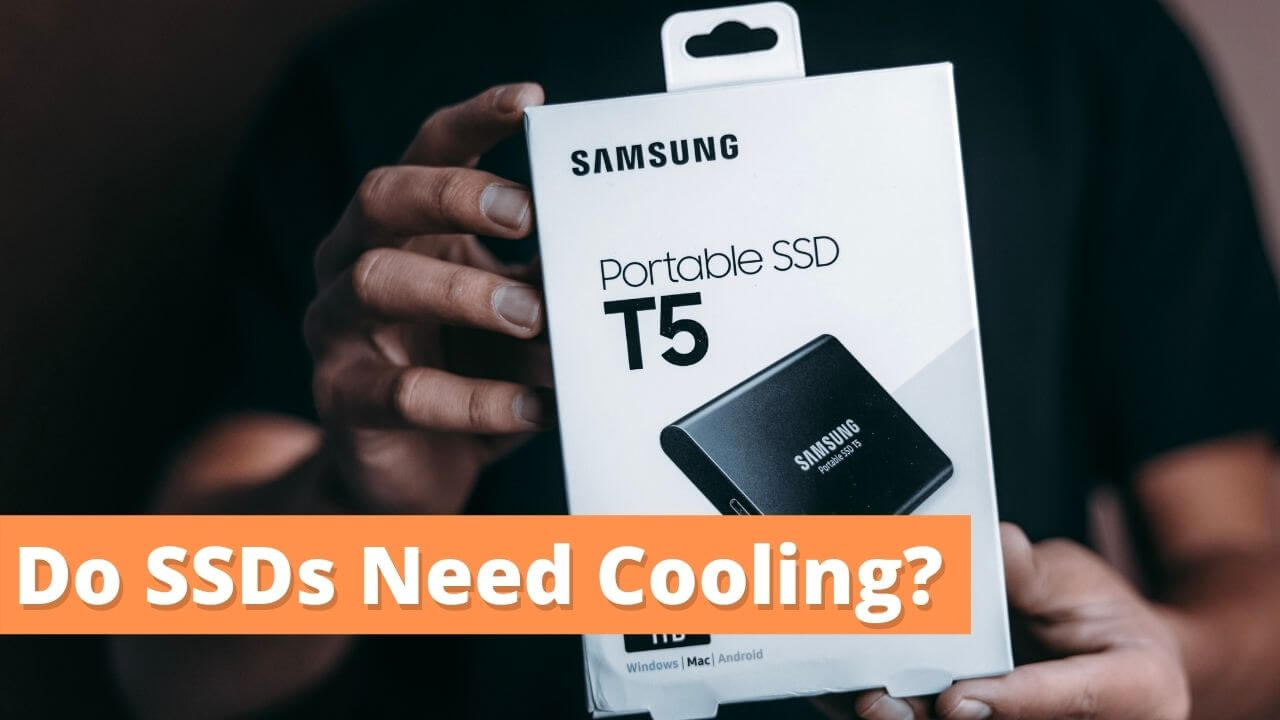As the world becomes more and more digital, storing data is a necessity. All of this data requires storage space which can be expensive to maintain. The cost of an SSD (Solid State Drive) has been dropping significantly in recent years, making them much more affordable than they were originally when they first came out on the market.
People always prefer to choose SSDs over HDDs because SSDs are more efficient than HDDs, they’re also faster and quieter, not to mention, of course, the higher cost of an SSD, You need to know that you can’t use your computer for a long time without it overheating, SSDs get hot sometimes, so it’s important to buy a case that has good airflow.
In this article, we’re going to discuss and answer your question about if SSDs need cooling or not.
Do SSDs need cooling?
In most cases, no, it also depends on the other parts next to it, if you’re a hard-core gamer and you put the SSD next to the GPU, it may overheat and thus its lifespan will decrease over time, so you should put it away and provide enough airflow over it.
Here are some factors that you need to consider:
- SSDs are more likely to overheat than hard drives because they have no moving parts
- The only time you would need to cool an SSD is if it’s in a laptop and the computer gets too hot
- If your laptop has a fan that blows air out of the back, then it should be able to dissipate heat from both the CPU and the SSD
Do m.2 SSDs need cooling?
Yes, m.2 SSDs do need cooling, M.2 SSDs might thermal throttle and underperform if they get hotter, unlike normal SSDs, It’s important to keep your m.2 SSD cool so it can run at its full potential.
There are a few ways to keep your m2 SSD cool:
- Use a heatsink or fan with the drive (most motherboards have one)
- Keep the drive in an area that is not too hot and has good airflow around it
Do SSDs overheat?
Yes, it does, only when you put it under pressure and move a lot of files too fast, but as mentioned above and as mentioned by most users on forums, you shouldn’t worry too much about it, because some SSDs will slow down if they get hotter to prevent them from getting damaged, SSDs are designed to shut down before overheating, it also depends on the SSD’s design and how it’s used.
How can I cool my SSD
Some airflow over it would be fine, if you want to take it to the next level and spend more money, then add more cooling fans, or you could just keep it away from any overheating parts like the CPU or GPU.
There are also a few ways you can prevent your SSD from overheating:
First, keep your computer well ventilated.
Second, don’t put anything heavy on top of your laptop, If you’re worried about the temperature, just make sure to keep your laptop on a flat surface and not in direct sunlight or near anything that could cause heat damage.
Third, make sure that there’s at least two inches between any other electronics in case one malfunctions.
Do SSDs need a heatsink?
No, SSDs don’t need a heatsink, but it also depends on the size of the SSD and how much heat it generates.
Having a heatsink over your SSD is an advantage, The heatsink dissipates heat from the drive during intense operation, allowing the SSD to run for longer periods of sustained read and write performance, compared with non-heatsink versions (source)
